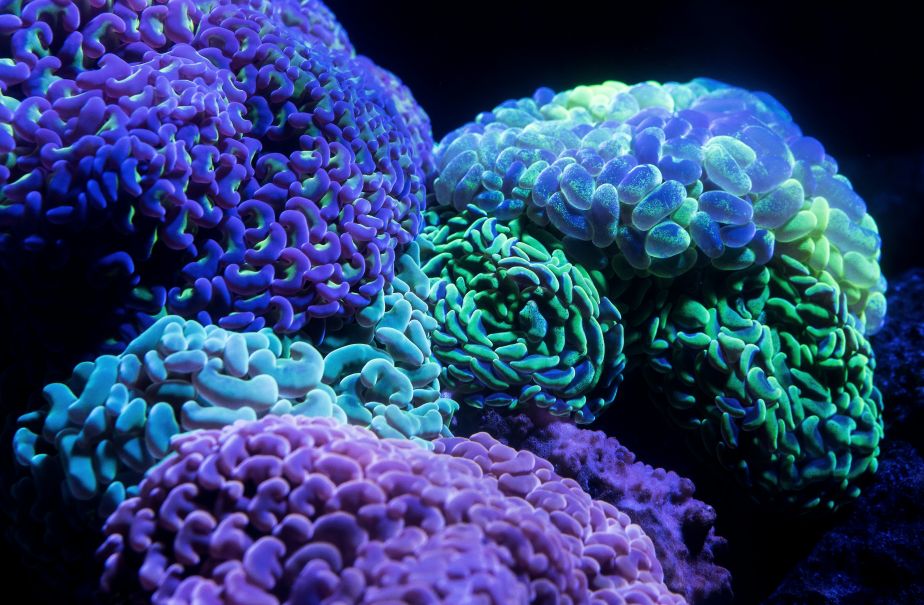
Image: David Clode
Marine scientists have found removing macroalgae from reefs can help coral larvae settle and has great possibilities as a citizen-science project to help coral reefs survive.
James Cook University’s Hillary Smith and Associate Professor David Bourne led the study. They said declining coral cover on tropical coral reefs often results in an increase in macroalgae (seaweed).
“When macroalgae proliferates outside regular seasonal growth, it can shift the ecosystem dominance away from corals. Seaweed can prevent or reduce coral settlement and survival, and so these reefs struggle to recover once seaweed is established,” said Ms Smith.
She said physical removal of macroalgae has been proposed to overcome this, but evidence for its effectiveness was lacking.
Ms Smith said a team of scientists and citizen scientists from Earthwatch Institute manually removed macroalgae from twelve 25-square-metre plots on a degraded reef off Townsville’s Magnetic Island.
“We did this prior to coral mass spawning across two years and recorded the number of coral recruits to settlement tiles and natural substrata. Four months after each spawning event, we found a threefold increase in coral recruits compared to control plots where macroalgae remained,” said Ms Smith.
Assoc Prof Bourne said at small scales on the Great Barrier Reef, macroalgae have shown increasing dominance at the expense of corals in recent decades and such community shifts are predicted to become more common as human-caused impacts increase.
“Longer-term monitoring and further research is needed, but at this point macroalgae removal looks like an accessible, cost-effective reef management method that requires minimal training. It’s labour-intensive, but it may be an attractive proposition for reef practitioners, the public, communities, or citizen science programs,” said Assoc Prof Bourne.
He said although reversing human damage on a large scale (i.e. global climate change and local impacts such as water quality) is the true solution to the reef crisis, the macroalgae removal approach looks promising as a means to help improve reef health.
Original Article: Seaweed removal helps coral babies thrive
More from: James Cook University | Earthwatch Institute
The Latest Updates from Bing News & Google News
Go deeper with Bing News on:
Removal of macroalgae from reefs
- coral reefs
Nearly a quarter of all ocean species rely on the reefs. William… Coral reefs across the globe once again endure mass bleaching amid warming oceans, scientists say Coral reef bleaching across ...
- Rapid oyster reef restoration gives hope for repairing the sea
After a century of functional extinction on the Australian mainland, a Flat oyster reef has been successfully restored along a metropolitan Adelaide coastline.
- Stony Coral Disease Is Reshaping Caribbean Reefs
Swaminathan explained that fast-growing species benefitting from the disease create a more seaweed-dominated environment compared to the rock-hard reef structures. “Macroalgae doesn’t support as much ...
- Stony coral tissue loss disease is shifting the ecological balance of Caribbean reefs
A new study shows stony coral tissue loss disease is causing drastic changes in the Caribbean's population of corals, which is sure to disrupt the delicate balance of the ecosystem and threaten marine ...
- Restoring Our Reefs
As part of a seven-year series on the planet's most threatened ecosystems, this third episode takes an in-depth look at efforts to save coral reefs. Show more As part of a seven-year project on ...
Go deeper with Google Headlines on:
Removal of macroalgae from reefs
[google_news title=”” keyword=”removal of macroalgae from reefs” num_posts=”5″ blurb_length=”0″ show_thumb=”left”]
Go deeper with Bing News on:
Macroalgae
- Whitcomb: Fare Break on MBTA; Multi-Use Coastal Crop; A Tawdry Time
Robert Whitcomb's weekly examination of everything that is important. Only Whitcomb offers such a collection of insights on the global and local issues that matter.
- This Cooking Oil Is Made Using Algae—And TBH, It’s as Amazing (and Versatile!) as Olive Oil
A splash of olive oil is typically the first thing to hit the pan the moment I start cooking. With a smoke point of around 400ºF, a little bit of olive oil goes a long way—from kickstarting the ...
- Algae Products Market for Cosmetics to Reach $1.10 Billion by 2031 - Exclusive Report by Meticulous Research®
REDDING, Calif., May 8, 2024 /PRNewswire/ -- According to a new market research report titled, 'Algae Products Market for Cosmetics by Type (Hydrocolloids, Lipids, Carotenoids), Source (Seaweed, ...
- Supplementing diet for farmed abalones to manipulate greenlip abalone lip and shell color
The benefits to the color of shell, feet and lip color of adding dried macroalgae to the diets of farmed greenlip abalone (Haliotis Laevigata) was evaluated in their latest study published in the New ...
- Seaweed season in Florida: Photos, videos show gross brown blob that is sargassum
Sargassum is a species of large brown seaweed, a type of macroalgae that floats in large masses. On some beaches in Florida, the "blobs" of crunchy, dry, brown stinky seaweed are fairly large. In one ...
Go deeper with Google Headlines on:
Macroalgae
[google_news title=”” keyword=”macroalgae” num_posts=”5″ blurb_length=”0″ show_thumb=”left”]









